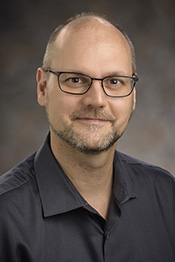The 3rd International Workshop "Data Engineering Meets
intelligent food and Cooking Recipes"
Click
Here >>>>> registration to DECOR 2020
Enjoy the coming DECOR Workshop 2020 !!!!!!!!
Due
to recent directives involving COVID-19,
the IEEE ICDE 2020 will
instead take place
virtually on April 20th – 24th, 2020.
Following
ICDE conference, DECOR 2020
workshop will take place virtually on April 20th.
Registration for
authors and attendees are anyway needed.
>>>>>>>Preliminary DECOR 2020@ICDE program 20 April 2020
Keynote
Speakers
Academia Keynote: Distinguished University Professor and Eminent Scholar Alan R. HEVNER (University of South Florida, USA)
Academia Keynote: Professor and endowed Lloyd T. Smith Creativity in Engineering Chair Pascal HITZEL (Director of the CAIDS, Kansas State University, USA)
The Third Workshop on Data Engineering meets intelligent food and COoking Recipes (DECOR) aims to accelerate research in data science by providing a forum for the latest innovations in the intersection of Data Engineering and Intelligent Food and Cooking Recipes, concerning data and software organization, integration, and sharing. This workshop is specifically focused on data science innovations that accelerate the integration, access, and sharing of digital objects in support of Intelligent Food and Cooking Recipes domain, which comprises not only the process of cooking, but also includes intelligent methods for enhancing human-food interactions, ranging from devising technology, playful interactions, multisensory experience design, understanding cross-cultural food eating habits and perception, as well as food choices and health connections. Consequently, increasing the ability of influencing food eating habits and choices that promote, simultaneously, healthful eating-decisions and creative new human-food interaction experiences.
The goal of the workshop is to provide concrete contributions in developing model design, technologies and presenting intelligent data management tools supporting Intelligent Food and Cooking Recipes processes. Authors will be encouraged to submit contributions addressing a range of topics in the intersection of Data Sciences and Intelligence Food. In addition to primary investigations applying advanced analytic pipelines to data already stored in repositories, desirable contributions also include the reports of the full set of digital objects that are produced. These digital objects might include original data, software, software pipelines, models, workflows, containers, virtual machines, intermediary data, and metadata strategies.
